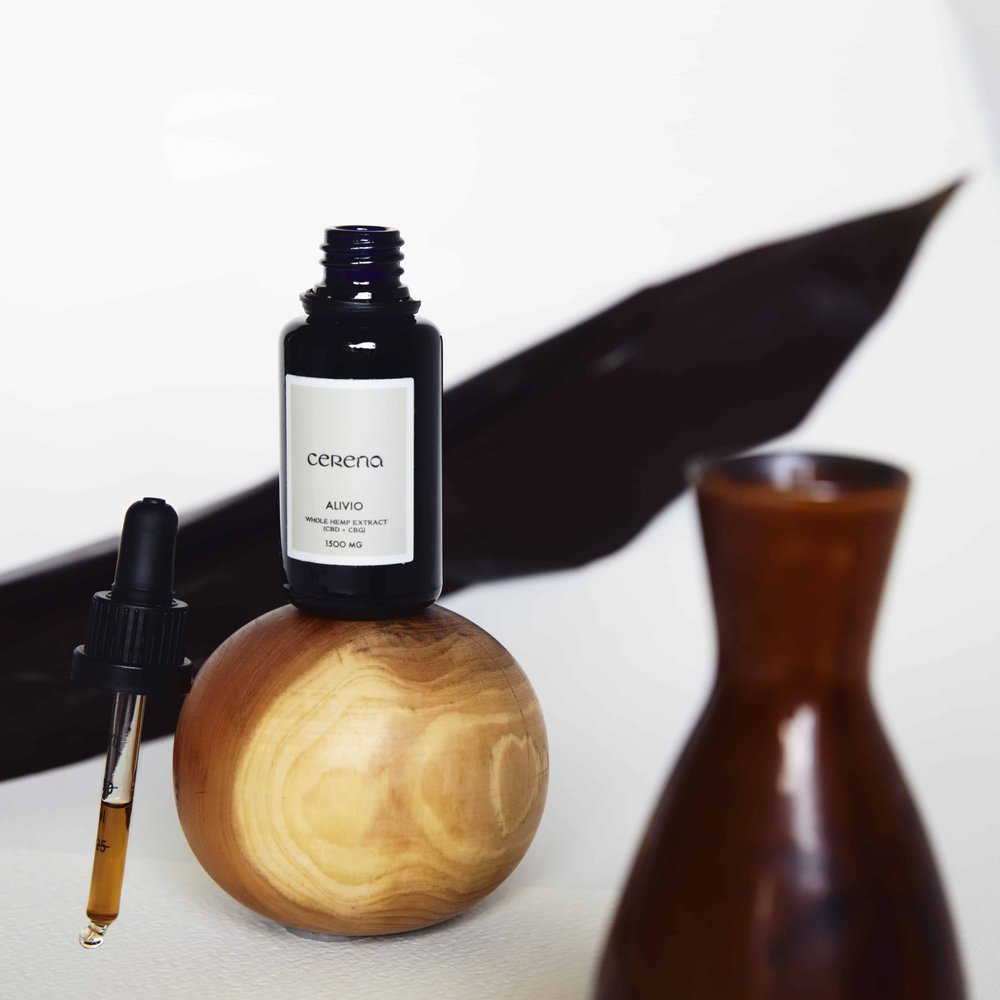Treating Mild Postpartum Depression and Anxiety with CBD
For Many Mamas Who Are Suffering From Postpartum Depression and Looking For More Natural Remedy, CBD May Be The Answer.

Postpartum depression and other mood disorders are very common in early pregnancy. We know it’s the understatement of the century, but those first few days, weeks, and months are HARD. Sleep-deprived, sore, leaking or engorged breasts…then add on mental health issues and you’ve got a recipe for complete overwhelm.
Fortunately, there’s less stigma around postpartum depression (PPD) than there used to be. We’re talking about PPD more often, there’s a greater understanding of the range of symptoms that new moms experience, and different types of solutions. When identified and treated early, many moms are finding success with prioritizing rest, exercise, Vitamin D, and even using CBD to help manage anxiety.
Depending on the severity of postpartum depression, and how long you’ve been experiencing symptoms, it may be worth considering different types of natural remedies, including CBD, rest, and exercise.
Understanding Postpartum Depression and Anxiety
After giving birth, the vast majority of women experience some version of an “emotional rollercoaster.” For some women, however, the lows are much lower than average, indicating some form of postpartum depression, anxiety, or baby blues. In fact, research shows that about 85% of women experience some type of mood disturbance during the postpartum period.
Most of the time, the symptoms of baby blues are mild and short-lived and can be managed without medication. For one in nine women, however, the symptoms are more severe. Postpartum anxiety is actually the most prevalent, with nearly 17% of new moms being diagnosed with PPA. There are some important distinctions between these three common mood disorders.
The baby blues is the most common, occurring in up to 85% of women. It’s so common, in fact, that many experts think it should be considered a normal part of giving birth rather than an illness. Symptoms include mild anxiety, irritability, and tearfulness. The most important difference between the blues and PPD is that it’s short-lived: the blues should peak on the fourth or fifth day after delivery.
Postpartum anxiety is characterized by excessive worrying, racing thoughts, and feelings of dread. The difference between what’s manageable and what’s extreme is when these worries become irrational, or you develop panic attacks. If the feelings of anxiety affect your ability to care for your child, it’s important that you seek help.
Postpartum depression typically happens during the first three months after delivery. Symptoms include intense sadness, tearfulness, loss of interest in usual activities, feelings of guilt, worthlessness or incompetence, fatigue, change in appetite, and even suicidal thoughts.
Some women experience side effects with antidepressants and prescription drugs that make them feel even worse. Moms who are breastfeeding may also want to avoid antidepressants if possible. This makes alternative remedies, like CBD, worth a try. As always, if you’re experiencing mood disturbances and are curious about whether any alternative treatments may be right for you, speak with your healthcare provider first.
Natural Treatments for Postpartum Depression
For new moms suffering from any kind of mood disturbance, it’s absolutely critical to prioritize self-care. Finding time for yourself when you have a newborn is difficult, so this might mean calling on family or friends to look after your baby for an hour while you do something for yourself, like take a shower, take a nap, or exercise.
It’s important to realize that although you may immediately feel better after a nap or shower, you will need to continue to look after your needs in the days and weeks to come to make sure you don’t get too run down. When it comes to preventing PPD, rest is the most important natural remedy, followed by exercise.

In the last couple of years, CBD has become extremely popular for treating a variety of symptoms associated with postpartum mood disorders, like anxiety, irritability, and insomnia. It can also be helpful when it comes to the physical healing process after birth.
Georgeana Ortiz , founder of CBD company Cerena says, “CBD is a great doorway, inviting you to step out of your head, and shift into a cool, calm, and collected state of being. Ultimately, CBD is one part of what helps you get out of your own way and back to thriving, rather than surviving.”
While THC and CBD are both cannabinoids, CBD has no psychoactive effects. In other words, it can’t get you high. When choosing a CBD product, it’s important to look for a high-quality, full-spectrum oil that is formulated to match your needs or symptoms. Cerena, for example, makes a full-spectrum, certified organic CBD oil called “Calma” that’s specially formulated to ease stress and anxiety.
What about using CBD while breastfeeding?
While research has shown that THC can be transferred to a baby through a mother’s breast milk, thus far it doesn’t appear that CBD behaves the same way. However, studies to date have been small and extremely limited. For this reason, it’s generally recommended to avoid ingesting CBD when breastfeeding.
Topical applications are considered a safe alternative since they don’t get absorbed into your bloodstream. CBD salves, for example, can help aches and pains, especially tense shoulders, soreness, and tenderness from breastfeeding. Many also have a calming scent to them, which helps relieve anxiety. It’s also important to remember that a full spectrum CBD product will always be a more effective solution but if you prefer to stay away from the beneficial low levels of THC found in full-spectrum formulas, you could try a broad-spectrum formula that has been further processed to remove the low levels of THC or a CBD isolate which only contains CBD and no supporting cannabinoids or terpenes.
How does CBD work? How can it help specifically?
CBD mainly interacts with your endocannabinoid system, whose primary function is to maintain homeostasis in the body under different kinds of stressful conditions, including inflammation and infection. When it comes to CBD, experts believe it works by turning specific receptors of the endocannabinoid system (ECS) on or off.
When it comes to serotonin, a powerful neurotransmitter related to mood, research has shown that people suffering from PPD have more of a certain subtype of serotonin receptors that are less likely to bind to the feel-good neurotransmitter in your brain. CBD may help by impacting how your brain’s receptors respond to serotonin, helping to improve healthy brain function and calm nerves.
In her blog about The Benefits of CBD Oil for Women, The Bloom Method nutritionist Sarah-Jane Sandy said, “There’s plenty of research out there that shows how CBD can help with mood disorders. A study done in 2010 found that CBD can help people with social anxiety disorder by changing blood flow to the regions of the brain linked to feelings of anxiety. In this study, CBD also changed the way the participant’s brains responded to anxiety.”
Ready to try CBD? More about Cerena and a Special Offer for The Bloom Method Mamas
For mamas interested in trying CBD to relieve stress, pain, postpartum anxiety, or mild postpartum depression, we love Cerena, a CBD company whose products are grown and harvested on a certified organic, regenerative farm in Fort Collins, Colorado.
Through extensive R&D, Cerena infuses their organic full-spectrum hemp oil with other specific cannabinoids and nutrients dense ingredients to optimize their performance in targeting better sleep, pain and anxiety relief, and more.
For postpartum mamas who are not breastfeeding, we recommend Calma or Alivio for anyone dealing with and wanting relief from a mood disorder or depression; Alivio being more appropriate for pain and severe anxiety. For those that are struggling with sleep, Nocturno can help restore your circadian rhythm and put you to ZzZz. In terms of finding out the best dose to meet your needs, experts suggest starting low and slow, gradually taking more as needed. When in doubt, Cerena has a Discovery Flight that will allow you to experience each of their sublingual formulas before purchasing a full bottle.
For breastfeeding and pregnant mamas, topical application is best. We suggest Cerena’s highly moisturizing and soothing salve or functional aromatherapy roll-on. As an exclusive offer, take 30% off your first order today with code CERENAMAMA

The Bottom Line on CBD for Postpartum Depression
Moms who are breastfeeding may want to avoid antidepressants if possible. This makes alternative remedies much more enticing.
While CBD is generally considered safe with little to no side effects, the majority of data we have comes from anecdotal experiences rather than long-term research studies. The industry itself is still unregulated so there’s a wide range in quality.
All of this means it’s important to be discerning consumers when choosing to use it to treat postpartum mood disorders. Look for lab-tested full-spectrum CBD (preferably certified organic) and start with a low dose, working up to a place that feels right for you. When in doubt, speak with your healthcare provider first.



